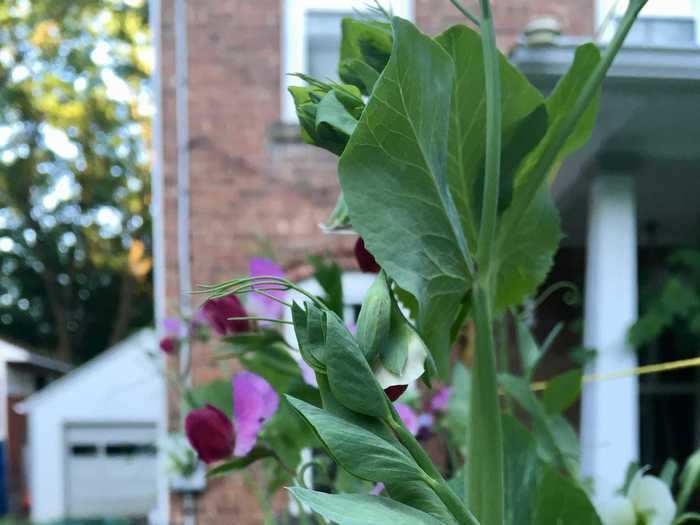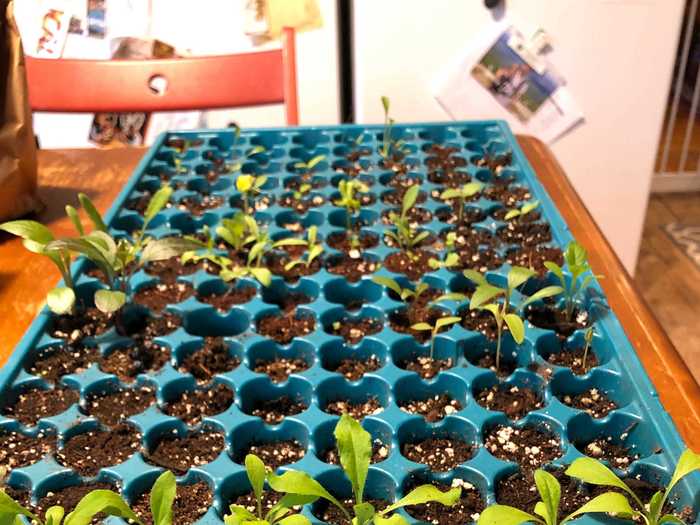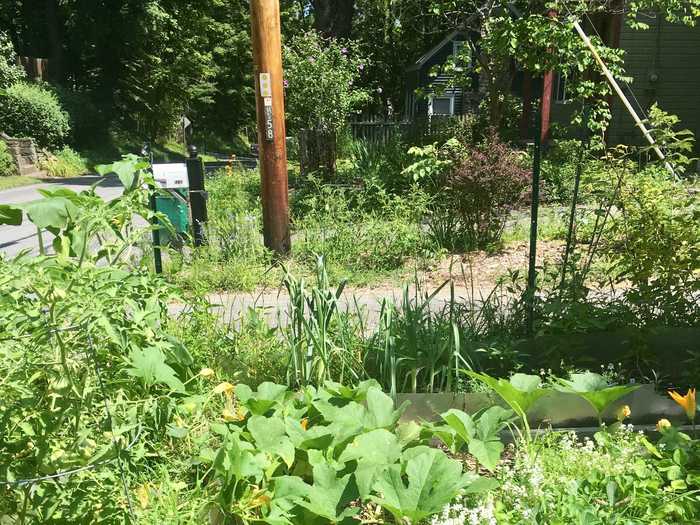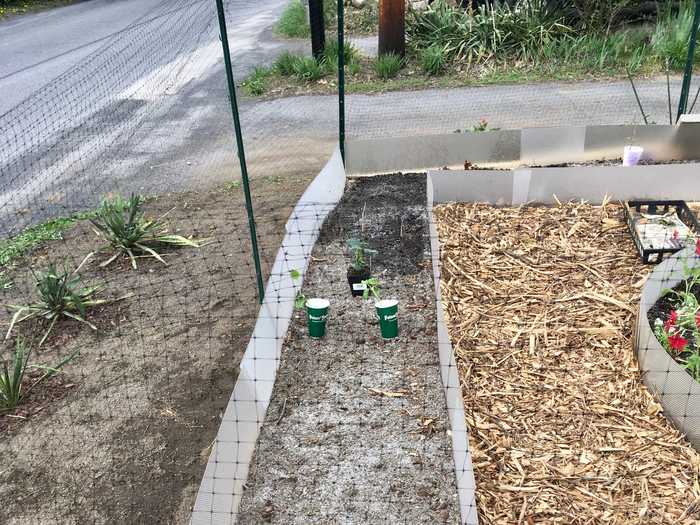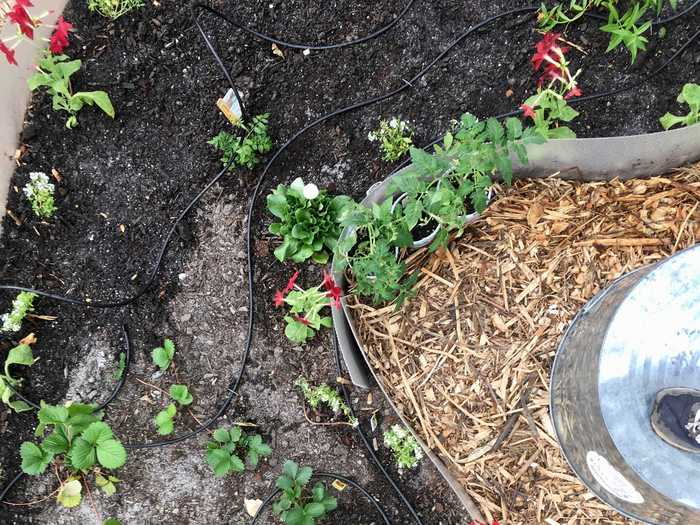Pepper, eggplant, and kale seedlings.Courtesy of Lindsey Danis
- Lindsey Danis is a freelance writer who lives in upstate New York.
- The pandemic has caused her to lose business amounting to more than half of her usual income.
- With no news from the unemployment office, Danis turned to her home garden and made plans to expand it to help stabilize her family's access to fresh food.
- "Growing my own food is the best way I know to curb fears of grocery-store scarcity, financial insecurity, and recession anxiety," says Danis.
- Visit Business Insider's homepage for more stories.
As the first wave of retailers closed down in New York's Hudson Valley in the wake of the coronavirus pandemic, my wife and I headed to the garden center and loaded our hatchback with compost.
For the last three years, I've gardened for fresh air, exercise, and a personal supply of heirloom tomatoes. As COVID-19 upended my life, my garden became a strategic asset to get through the pandemic and the recession created in its wake.
As my freelance writing clients (small businesses, restaurants, and travel companies) shut down amid COVID-19, I lost at least 60% of my income. The last-minute compost run was my attempt to slash food costs and stabilize my family's fresh food access amid the coronavirus pandemic by growing an epic garden.
I've applied for pandemic unemployment and small-business assistance, but I don't know when or if I'll get financial help. While I may be able to telework, the majority of my clients no longer have work for me — restaurants aren't open and travel is on hold — and some may never resume their normal operation. I'm waiting on invoices from work completed in February, and I'm not sure when those will get paid.
Read the original article on
Business Insider
Growing my own food is the best way I know to curb fears of grocery-store scarcity, financial insecurity, and recession anxiety.
Pea plant blossoms in June.
Courtesy of Lindsey Danis
Food grown in the garden is pennies on the dollar over grocery store or farmer's market fare at a time when that matters more than it would have previously. Quick-growing greens will be ready to eat in a month. Storage crops (like winter squashes) mature in the fall, but keep at least six months.
By processing, freezing, or dehydrating food, I can put away a year's worth of tomato sauce, pesto, ratatouille, frozen corn, and other goodies. The economy may be suffering, but I'll eat well — and cheaply — thanks to my garden.
It can be expensive to put in a garden, but there are ways to garden cheaply.
Building the garden beds.
Courtesy of Lindsey Danis
I built my garden beds three years ago with recycled materials from a local reuse center. Seed packets keep for several years (though germination rates drop over time), and cost less than vegetable starts. Splurging on seeds, seed starting medium and a plant light will outfit a garden for several years, not one season, and many plants can be grown in succession for continuous harvest.
Gardening helps us stay in the moment instead of worrying about the future.
Seedlings beginning to grow.
Courtesy of Lindsey Danis
In so much uncertainty, gardening lets me focus on something I can control.
Rows of pumpkin and tomatoes in August.
Courtesy of Lindsey Danis
Working on the garden redirects my focus from the uncertainty of life amid coronavirus to things I can control. Rather than ruminate about how many weeks (three so far) it'll take to receive unemployment, assuming I qualify, I plant seeds. Each time I glance out the window at my waiting garden beds, I'm soothed. I may not have work today, and I don't know what tomorrow will bring, but I know I'm doing what I can to meet my family's food needs.
I'm growing food with a long-term recession in mind.
Rows of pumpkin and tomatoes.
Courtesy of Lindsey Danis
Anticipating a lengthy recession, I've added storage crops, like parsnips and winter squash. I'm trying out fast-growing wine cap mushrooms in a shaded area behind my garage that's otherwise unusable.
In the month since New York's coronavirus shutdown, I've kept busy by gardening.
Planting strawberries.
Courtesy of Lindsey Danis
Following a planting calendar for my region, I do a few gardening activities each week. Right now, I'm acclimating kale for transplant; next week, I'll start squash seeds.
A kitchen card table holds homegrown seedling packs of kale, mustard greens, herbs, tomatoes, peppers, and eggplants. Outside, cold-hardy peas, radishes, arugula, mesclun mix, and stir-fry greens sprout. I'll have enough to eat and some to freeze.

